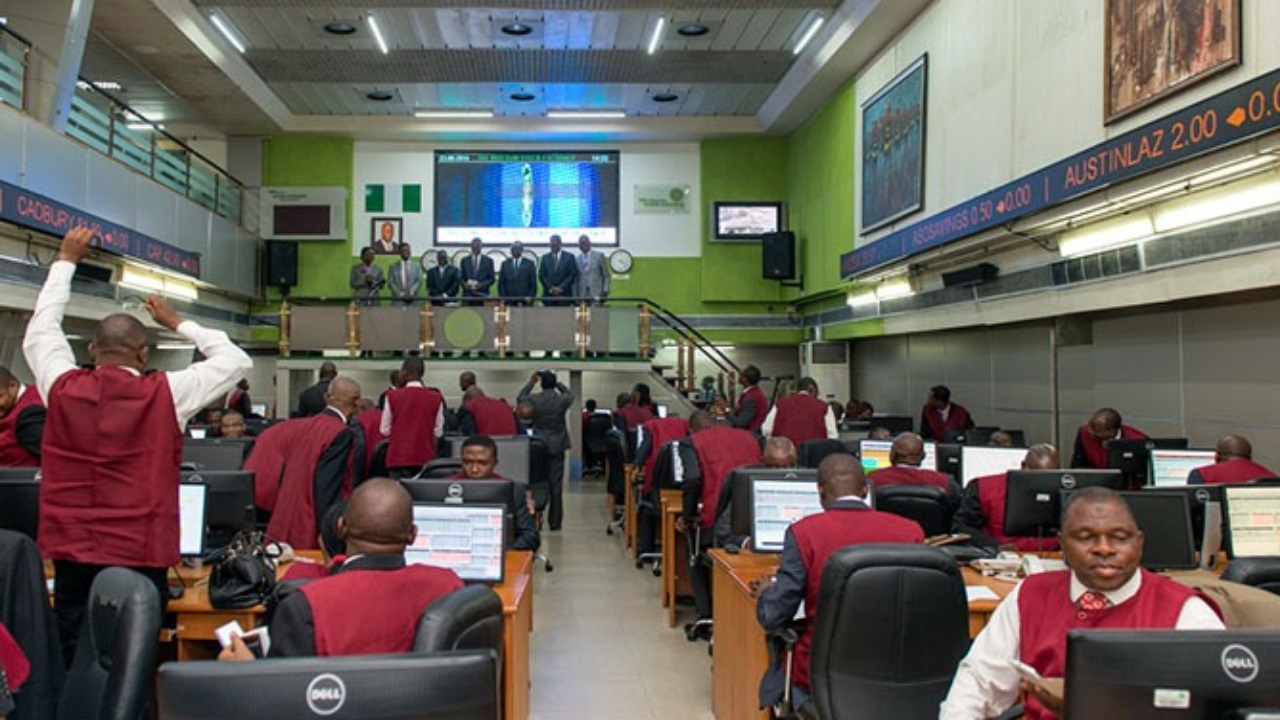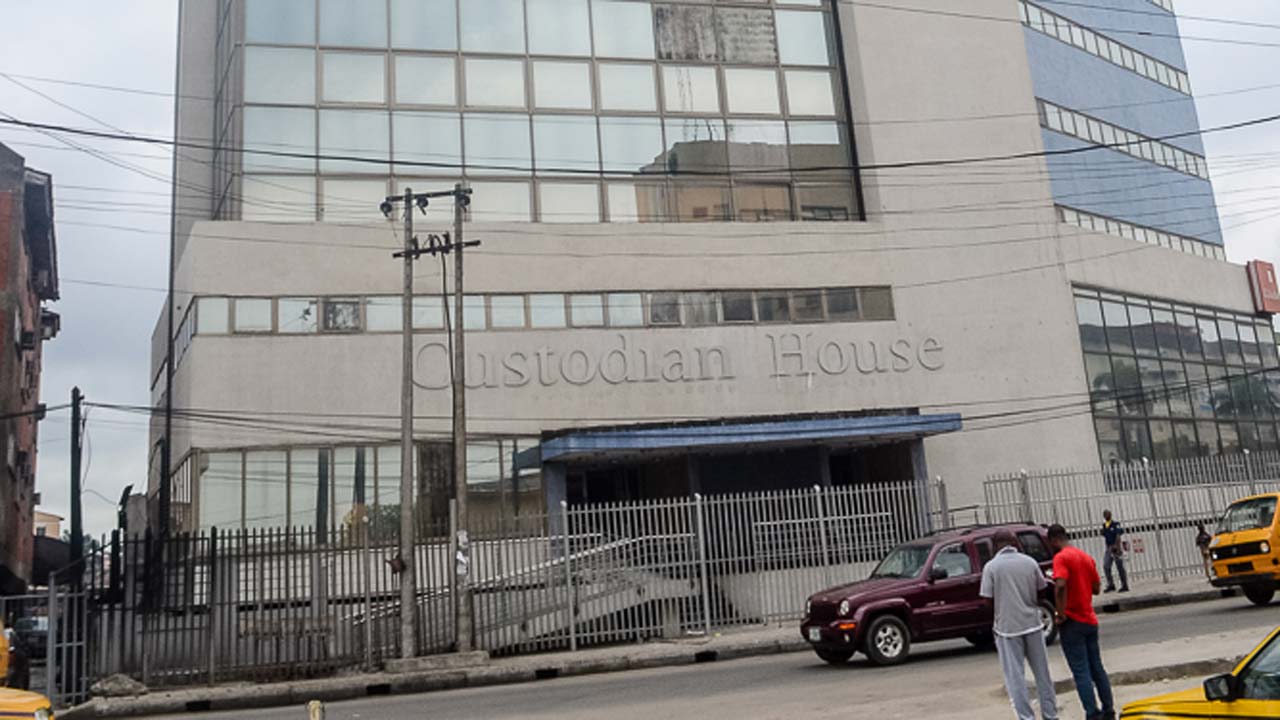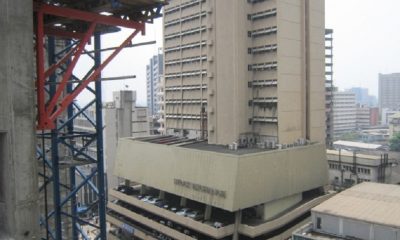Economy
Uncertainty About Tariffs, Looming Jobs Report May Lead to Choppy Trading

By Investors Hub
The major U.S. index futures are pointing to a modestly higher opening on Thursday following the mixed performance seen in the previous session.
Despite the upward momentum, traders may be reluctant to make significant moves ahead of the release of the Labor Department?s closely watched monthly jobs report on Friday.
Employment is expected to jump by 200,000 jobs in February, matching the increase seen in January. The unemployment rate is expected to dip to 4.0 percent from 4.1 percent.
Uncertainty about the details of President Donald Trump?s planned tariffs on steel and aluminum imports may also keep some traders on the sidelines.
After initially moving to the downside, stocks fluctuated over the course of the trading session on Wednesday. While the major averages all climbed well off their worst levels of the day, only the Nasdaq managed to close in positive territory.
The major averages subsequently turned in a mixed performance on the day. The Nasdaq rose 24.64 points or 0.3 percent to 7,396.65, but the Dow fell 82.76 points or 0.3 percent to 24,801.36 and the S&P 500 edged down 1.32 points or 0.1 percent to 2,726.80.
The mixed close on Wall Street came after White House Press Secretary Sarah Sanders suggested Mexico and Canada could be exempt from President Donald Trump’s planned tariffs on steel and aluminum imports.
“We expect that the President will sign something by the end of the week,” Sanders said. “And there are potential carve-outs for Mexico and Canada based on national security and possibly other countries as well based on that process.”
She added, “That will be a case by case and country by country basis. It would be determined whether or not there is a national security exemption.”
Stocks initially came under pressure in reaction to news of the resignation of White House chief economic advisor Gary Cohn on Tuesday.
The resignation by Cohn, a free trade advocate, reportedly came amid a dispute over Trump’s plans to impose tariffs on steel and aluminum imports.
In a statement, Trump said Cohn did a “superb job in driving our agenda, helping to deliver historic tax cuts and reforms and unleashing the American economy once again.”
Trump said in a post on Twitter that he would make a decision on a new chief economic advisor “soon,” adding, “Many people wanting the job – will choose wisely!”
In U.S. economic news, payroll processor ADP released a report showing private sector employment increased by more than expected in the month of February.
ADP said employment in the private sector jumped by 235,000 jobs in February after surging up by a revised 244,000 jobs in January. Economists had expected an increase of about 195,000 jobs.
A separate report from the Commerce Department showed the trade deficit widened by more than expected in the month of January.
The report said the trade deficit widened to $56.6 billion in January from $53.9 billion in December, reaching its highest level since October of 2008. The deficit had been expected to widen to $55.1 billion.
Later in the day, the Federal Reserve released its Beige Book, which reinforced expectations the central bank will raise interest rates at its monetary policy meeting later this month.
The Beige Book, a compilation of anecdotal evidence on economic conditions in the twelve Fed districts, said economic activity expanded at a modest to moderate pace in January and February.
The Fed noted wage growth picked up to a moderate pace, with employers raising wages and expanding benefit packages in response to tight labor market conditions.
With regard to overall inflation, the Fed said price increases were seen in all twelve districts and most reports noted moderate inflation.
Most of the major sectors ended the day showing only modest moves, although considerable weakness was visible among gold stocks.
Reflecting the weakness in the gold sector, the NYSE Arca Gold Bugs Index slumped by 2.5 percent after jumping by 2 percent in the previous session. The pullback by gold stocks came amid a decrease by the price of the precious metal.
Energy stocks also saw significant weakness, moving lower along with the price of crude oil. While retail stocks also moved to the downside on the day, some strength emerged among biotechnology and real estate stocks.
Economy
Shettima Blames CBN’s FX Intervention for Naira Depreciation

By Adedapo Adesanya
Vice President Kashim Shettima has attributed the Naira’s recent depreciation to the intervention of the Central Bank of Nigeria (CBN) in the foreign exchange (FX) market, stating that the currency could have strengthened to around N1,000 per Dollar within weeks if the apex bank had allowed market forces to prevail.
The local currency has dropped over N8.37 on the Dollar in the last week, as it closed at N1,355.37/$1 on Tuesday at the Nigerian Autonomous Foreign Exchange Market (NAFEM), after it went on a spree late last month and into the early weeks of February.
However, speaking on Tuesday at the Progressive Governors’ Forum (PGF), Renewed Hope Ambassadors Strategic Summit in Abuja, the Nigerian VP said the intervention was to ensure stability.
“In fact, if not for the interventions by the Central Bank of Nigeria yesterday, the 1,000 Naira to a Dollar we are going to attain in weeks, not in months. But for the purpose of market stability, the CBN generously intervened yesterday.
“So, for some of my friends, especially one of our party leaders who takes delight in stockpiling dollars, it is a wake-up call,” the vice president said.
He was alluding to CBN buying US Dollars from the market to slow down the rapid rise of the Naira.
Latest information showed that last week, the apex bank bought about $189.80 million to reduce excess Dollar supply and control how fast the Naira was gaining value.
The move was aimed at preventing foreign portfolio investors from exiting Nigeria’s fixed-income market, as large-scale sell-offs could heighten demand for US Dollars, intensify capital flight, and exert further pressure on the exchange rate.
Amid this, speaking after the 304th meeting of the monetary policy committee (MPC) of the CBN on Tuesday, Governor of the central bank, Mr Yemi Cardoso, said Nigeria’s gross external reserves have risen to $50.45 billion, the highest level in 13 years.
This strengthens the country’s foreign exchange buffers, enhances the apex bank’s capacity to defend the Naira when needed, and boosts investor confidence in the stability of the Nigerian FX market.
Economy
Dangote Refinery Exports 20 million Litres Surplus of PMS
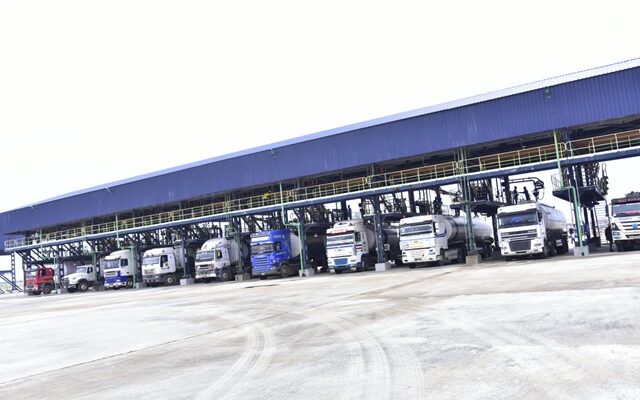
By Aduragbemi Omiyale
Up to 20 million litres in surplus of Premium Motor Spirit (PMS), otherwise known as petrol, is being exported daily by the Dangote Petroleum Refinery and Petrochemicals after supplying about 65 million litres to the domestic market.
Nigeria’s average daily petrol consumption stands at between 50 and 60 million litres, indicating that the refinery’s output exceeds current domestic requirements, marking a decisive break from decades of fuel import dependence and recurrent scarcity.
The president of Dangote Group, Mr Aliko Dangote, speaking in Lagos, while confirming a structured offtake agreement with selected marketers to ensure nationwide distribution and eliminate supply instability, said the structured model was designed to eliminate supply bottlenecks and curb speculative practices that have historically triggered disruptions.
“We have agreed an offtake framework to supply up to 65 million litres daily for the domestic market. Any surplus, estimated at between 15 and 20 million litres, will be exported,” he said.
Under a revised distribution framework endorsed by the Nigerian Midstream and Downstream Petroleum Regulatory Authority, the refinery will channel nationwide supply through major marketing companies, including MRS Oil Nigeria Plc, Nigerian National Petroleum Company Limited Retail (NNPC), 11 plc (Mobil Producing Nigeria), TotalEnergies Marketing Nigeria Plc, Rainoil Limited, Northwest Petroleum & Gas Company Limited, Ardova Plc, Bovas & Company Limited, AA Rano Nigeria Limited, AYM Shafa Limited, Conoil and Masters Energy.
With local refining now exceeding national demand, the country stands to conserve billions of dollars annually in foreign exchange previously spent on petrol imports. Analysts say this would ease pressure on the naira, strengthen external reserves, and improve trade balance stability.
Economy
NECA, CPPE Laud CBN’s 0.50% Interest Rate Cut
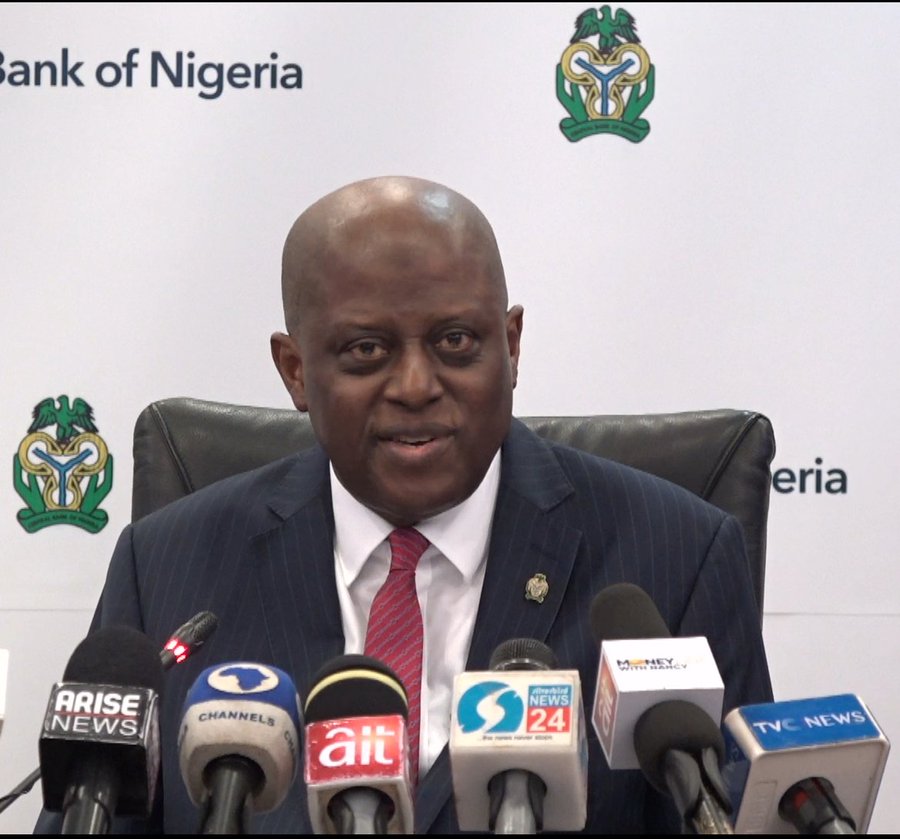
By Adedapo Adesanya
The Nigeria Employers’ Consultative Association (NECA) and the Centre for the Promotion of Private Enterprise (CPPE) have separately commended the Central Bank of Nigeria (CBN) for reducing the Monetary Policy Rate (MPR) from 27.0 per cent to 26.5 per cent at its 304th Monetary Policy Committee (MPC) meeting.
In reaction, NECA Director-General, Mr Adewale-Smatt Oyerinde, praised the decision in a statement, noting that the 50 basis-point cut is “a cautious but noteworthy signal” that authorities were responding to sustained pressures on businesses.
He said the marginal reduction might not immediately lower lending rates, but reflected “a gradual shift toward supporting growth without undermining price stability”.
According to him, the overall stance remained tight, with the Cash Reserve Ratio retained at 45 per cent and the liquidity ratio at 30 per cent.
He added that the asymmetric corridor around the MPR was also maintained, reinforcing a cautious monetary approach.
“With a substantial portion of deposits still sterilised, banks’ capacity to expand credit to the real sector may remain constrained in the near term,” he said.
Mr Oyerinde described the move as “a careful balancing act” aimed at moderating inflation without worsening pressures on businesses.
He noted that firms continued to grapple with high operating costs, exchange rate volatility and weakened consumer demand.
“Inflation, particularly in food, energy and transportation, remains a significant challenge to employers and households,” he said.
He stressed that the modest easing must be supported by coordinated fiscal and structural reforms to address supply-side constraints.
Such reforms, he said, should improve infrastructure and enhance productivity across key sectors of the economy.
Mr Oyerinde urged financial institutions to ensure the MPR reduction was gradually reflected in lending conditions for manufacturers and SMEs.
He affirmed that although the MPC had not fully relaxed its tightening stance, the rate cut signalled cautious optimism.
“Sustained improvements in inflation, exchange rate stability and investor confidence will determine scope for further easing that supports growth and employment,” he said.
On its part, the CPPE said the decision reflected improving macroeconomic fundamentals and a cautious shift from aggressive tightening.
The organisation noted that sustained disinflation, stronger external reserves, an improved trade balance and relative exchange-rate stability had created room for monetary easing.
It said the rate cut could boost investor confidence and support private-sector growth, but cautioned that weak monetary transmission might limit its impact on lending rates.
The CPPE identified high cash reserve requirements, elevated lending rates, government borrowing and structural banking costs as major constraints to effective transmission.
The group also stressed the need for fiscal consolidation, citing high public debt, persistent deficits and rising debt-service obligations as risks to macroeconomic stability.
According to the chief executive of CPPE, Mr Muda Yusuf, effective policy coordination and stronger transmission mechanisms were critical to unlocking investment and sustaining growth, lauding the CBN for what he described as a measured and data-driven policy adjustment.
The CPPE boss noted that the easing reflected strengthening macroeconomic performance, declining inflation, growing reserves, improved trade balance and enhanced foreign exchange stability.
Mr Yusuf added that for the benefits of monetary easing to be fully realised, authorities must strengthen transmission to ensure lower lending rates for the real sector and advance credible fiscal consolidation to safeguard stability.
He said that if supported by structural reforms and disciplined fiscal management, the current policy direction could unlock a stronger investment cycle and more durable economic growth.
-

 Feature/OPED6 years ago
Feature/OPED6 years agoDavos was Different this year
-
Travel/Tourism10 years ago
Lagos Seals Western Lodge Hotel In Ikorodu
-

 Showbiz3 years ago
Showbiz3 years agoEstranged Lover Releases Videos of Empress Njamah Bathing
-

 Banking8 years ago
Banking8 years agoSort Codes of GTBank Branches in Nigeria
-

 Economy3 years ago
Economy3 years agoSubsidy Removal: CNG at N130 Per Litre Cheaper Than Petrol—IPMAN
-

 Banking3 years ago
Banking3 years agoSort Codes of UBA Branches in Nigeria
-

 Banking3 years ago
Banking3 years agoFirst Bank Announces Planned Downtime
-

 Sports3 years ago
Sports3 years agoHighest Paid Nigerian Footballer – How Much Do Nigerian Footballers Earn


